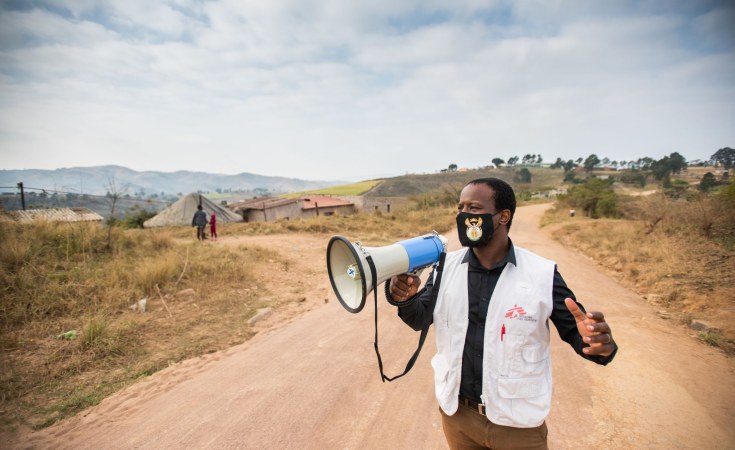Cape Town — Gauteng's Covid-19 infection rate climbed 6% after the easing of Covid-19 restrictions across the country. The increase, which was "noted with concern" by the provincial health department, was attributed to, among other factors, non-adherence to non-pharmaceutical interventions by some members of the public, said the province's Acting Health MEC Jacob Mamabolo.
Johannesburg, Tshwane and the north of Ekurhuleni were areas that saw notable increases in the number of active cases. Mamabolo urged the public to be cautious: "There is still no vaccine, the only way we can contain the spread of Covid-19 is through wearing of masks, keeping social distance and hand sanitisation, including adhering to the alert level 1 guidelines as provided by government."
Meanwhile, KwaZulu-Natal Premier Sihle Zikalala also called on citizens to adhere to the government's regulations on the pandemic, according to IOL. Noting a second wave of infections in the UK, which has since returned to lockdown due to the rise in cases, Zikalala said: "If it can happen to those first-world countries, it can happen to us. Therefore, let us not leave anything to chance, and ensure that we follow all the Covid-19 precautions. We cannot afford to be complacent."
The District Model
The UK's return to heavier restrictions is based on a "local lockdown" method. Implementation of that system locally would consist of the country being divided into 52 districts, each being individually assessed based on infection rates. The system may be adopted by South Africa if a second wave does indeed spread across the country, according to Professor Salim Abdool Karim, South African epidemiologist and infectious-diseases specialist, who spoke to Rapport.
Minister of Co-operative Governance and Traditional Affairs Nkosazana Dlamini Zuma, who advocated for South Africa's implementation of the district model in July, said it was necessary in order to address social inequalities exacerbated by the current crisis. Karim says the government is now ready to use the district model, which was initially avoided due to difficulty in policing it.
Following the country's downward trend in Covid-19 infections - commended by the World Health Organisation - Health Minister Zweli Mkhize said a possible resurgence would require a new approach.
"We have now re-evaluated the progress of the pandemic and the work of the ministerial advisory committee (MAC) on Covid-19 and resolved that this MAC requires strengthening to ensure that it is able to address gaps and target new challenges," Mkhize said. Minister of Higher Education, Science and Innovation Blade Nzimande will brief media on the regulations relating to the Covid-19 Level 1 restrictions today.


